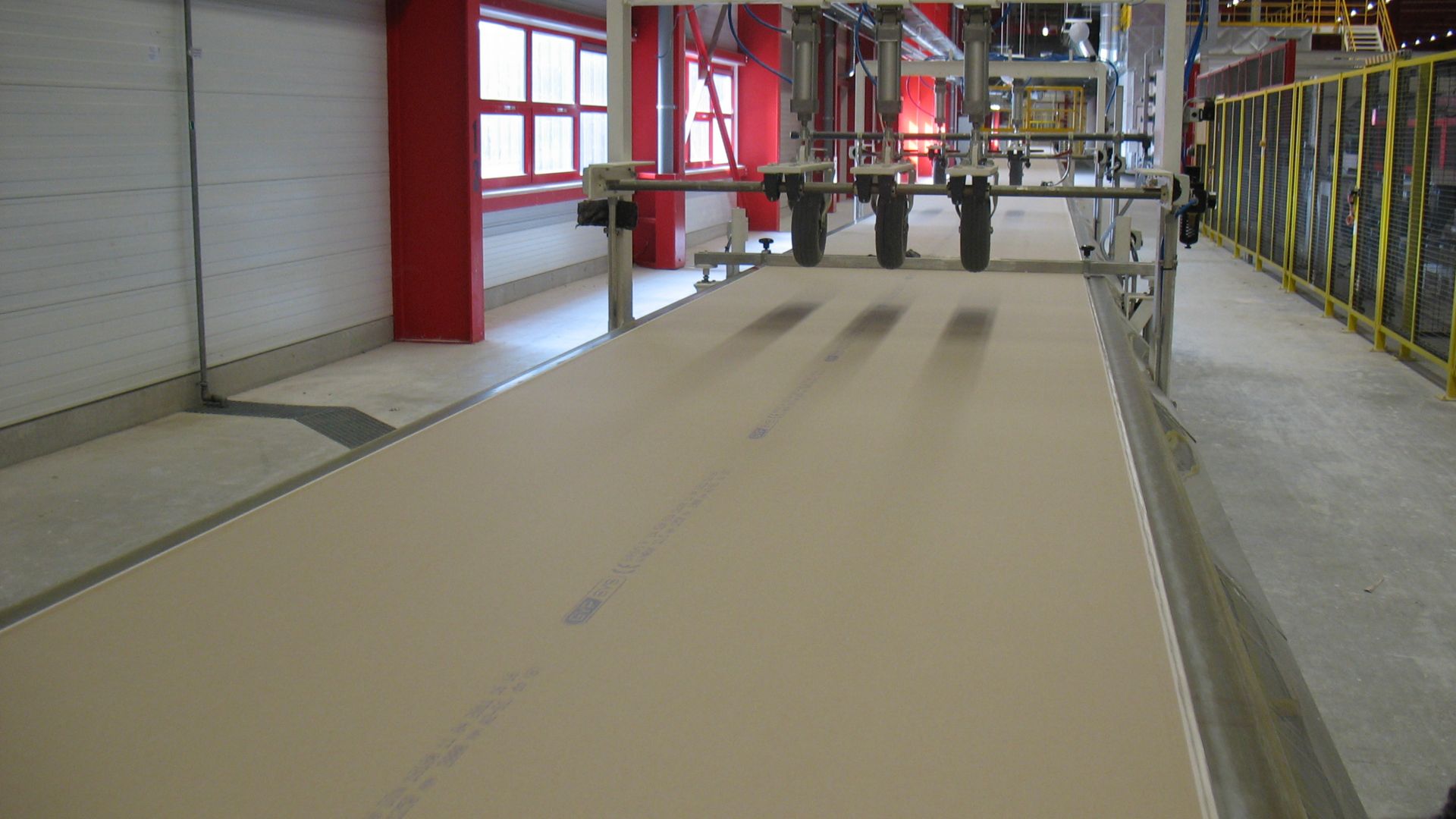In Europe, around 2380 million m² of gypsum boards are produced annually in 72 plants. There are also some factories that produce gypsumblocks, plaster elements and plaster molds. The foreseeable phase-out of coal-fired power plants will lead to bottlenecks in the supply of FGD gypsum. Alternatives from natural resources are not available in unlimited quantities in the desired quality. The use of less suitable gypsum or the use of recycled gypsum poses new challenges for Sika.
OUR SOLUTIONS FOR THE GYPSUM INDUSTRY
We clearly organised relevant product groups of the gypsum block and plasterboard industry from a wide range of system solutions. From consistency adjustment and water saving to setting control and adjustment of raw densities and board weights through to the production of perfect surfaces. Sika offers everything from a single source. Of course, we also have many other specialities in our portfolio and we are constantly working on new products.
You can also find all information you need briefly in our overviwe brochure. Download now for free.
HIGH PERFORMANCE SUPERLASTICIZER FOR GYPSUM INDUSTRY
Sika® ViscoCrete® high-performance superplasticisers are based on PCE (polycarboxylate ether) technology. Production is carried out in compliance with strict industrial standards and ensures continuous high product quality. By understanding the effect of different polymer designs, Sika is able to offer customised solutions for a variety of applications with different binders.
RETARDER FOR GYPSUM INDUSTRY
Begin and end of setting of plaster can be precisely controlled by using additives such as Retardan®. Additives which act on nucleation - especially retarders and accelerators based on dihydrate - have a much stronger effect than substances which influence solubility
AIR ENTRAINER FOR PLASTERBOARD AND MORE
Sika foaming agents are combinations of different surfactants which, when using a foam generator, produce a fine, very stable foam, e.g. for the plasterboard industry. Without a foam generator, using mixing energy alone, a very stable and almost optimally coordinated foam structure is achieved in conjunction with Sika® ViscoCrete®.
ENVIRONMENTALLY FRIENDLY EMULSION-BASED RELEASE AGENTS
Release agents should prevent the gypsumblock and mold from sticking together. In order to be able to fulfill this function, the used release agent must form a continuous film on the surface of the formwork and thus prevent any contact between the casting and the mold. Sika is a leader in the field of environmentally friendly emulsion-based release agents with very low consumption for beautiful and even surfaces. Vegetable oil as a raw material base ensures sustainability and excellent biodegradability.

